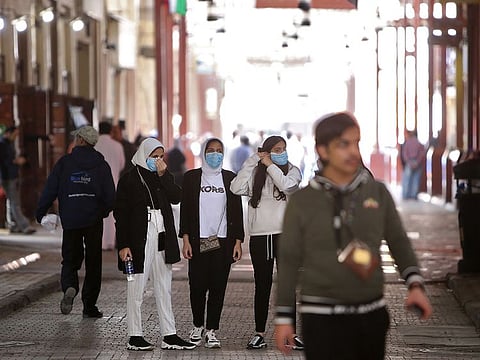Saudi Arabia halts entry for GCC nationals using ID
Authorities also suspended entry to the kingdom to those with tourist visas

Dubai: Saudi Arabia's foreign ministry on Thursday announced the suspension of entry of GCC citizens to Saudi Arabia using their national ID. Henceforth, they must use their passport.
In a statement, the ministry has also stated that Saudis are required to use their passports from now till further notice. Saudis abroad who want to return to the country or Gulf citizens in Saudi Arabia who wish to leave must also do the same, the statement added.
7 million visitors
Saudi Arabia received more than 7 million visitors for religious tourism in 2017, about 45% of 16 million total arrivals.
Saudi Arabia granted 400,000 visas since opening its tourism industry.
In response to the global coronavirus outbreak, Saudi Arabia has also temporarily suspended entry to the kingdom for the purpose of Umrah and visiting the Prophet’s Mosque.
Moreover, the Kingdom announced that entry has been suspended for those who come from countries identified for facing severe coronavirus outbreak, based on criteria set by the health authorities.
Saudi Arabia on Thursday halted travel over fears about a viral epidemic just months ahead of the annual Hajj pilgrimage, a move that came as health authorities in Middle East have reported 223 confirmed cases of the new coronavirus.
No confirmed cases in Saudi Arabia
The epicenter in the Mideast's most-affected country, Iran, appears to be in the holy Shiite city of Qom, where the fateful in reverence reach out to kiss and touch a famous shrine. Iran now has the highest death toll from the virus outside of China, the epicenter of the outbreak.
There have been no confirmed cases of the new coronavirus in Saudi Arabia amid the outbreak.
"Saudi Arabia renews its support for all international measures to limit the spread of this virus, and urges its citizens to exercise caution before traveling to countries experiencing coronavirus outbreaks,'' the Saudi Foreign Ministry said in a statement announcing the decision.
"We ask God Almighty to spare all humanity from all harm.''
More recently, Saudi Arabia faced a danger from another coronavirus that caused the Middle East respiratory syndrome, or MERS, which jumped from ill camels to humans.
The kingdom increased its public health measures during the hajj in 2012 and 2013, though no outbreaks occurred amid the pilgrimage.
Hardest hit in the region
Since it emerged in December in central China, the new coronavirus has sickened 82,000 people globally, with more than 2,700 deaths.
The hardest-hit nation in the Middle East is Iran, where Health Ministry spokesman Kianoush Jahanpour said 19 people have died among 139 confirmed cases of the illness, named COVID-19.
In Bahrain, which confirmed 33 cases as of Thursday morning, authorities halted all flights to Iraq and Lebanon.
It separately extended a 48-hour ban over flights from Dubai and Sharjah in the United Arab Emirates, through which infected travelers reached the island kingdom off the coast of Saudi Arabia.
The Ministry of Health in Kuwait announced that the number of new infections of coronavirus (Covid-19) has risen to 25 so far, as a result of 13 new confirmed infections with the virus on Wednesday.






